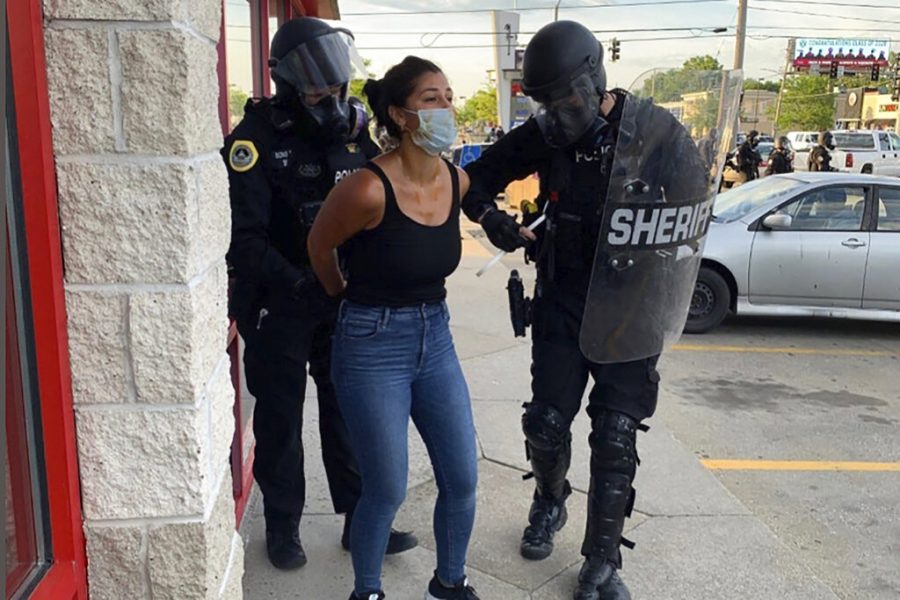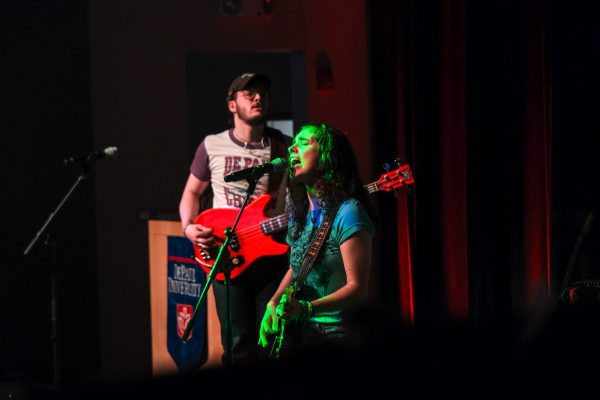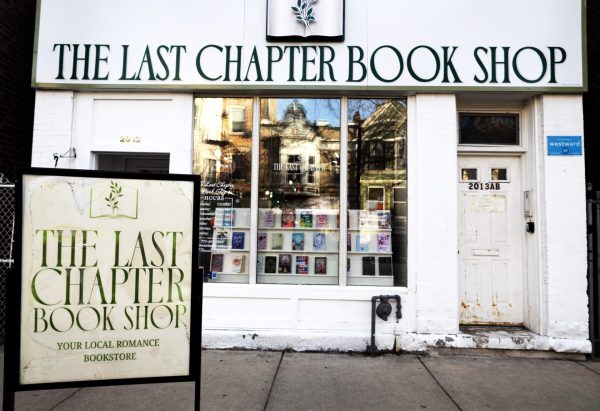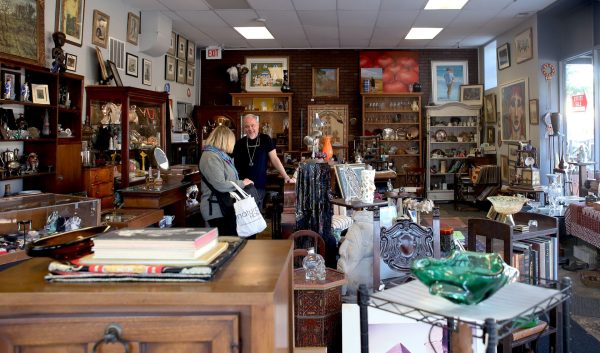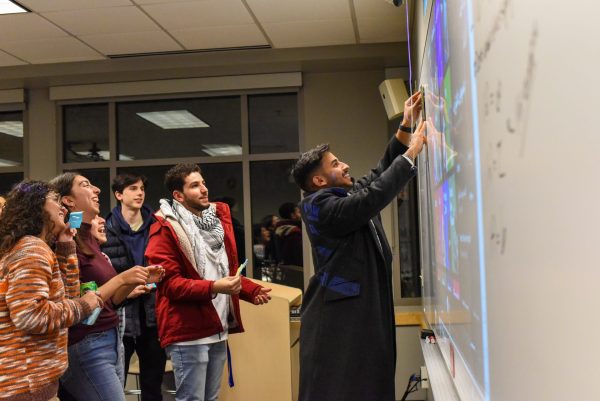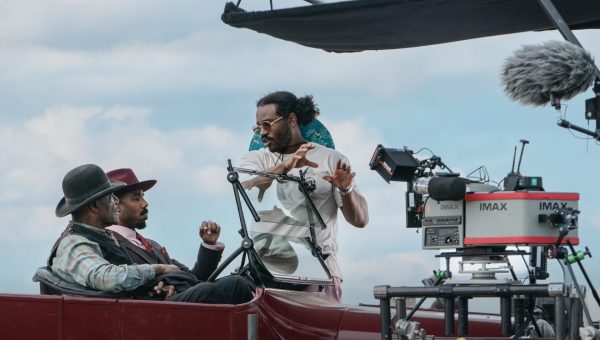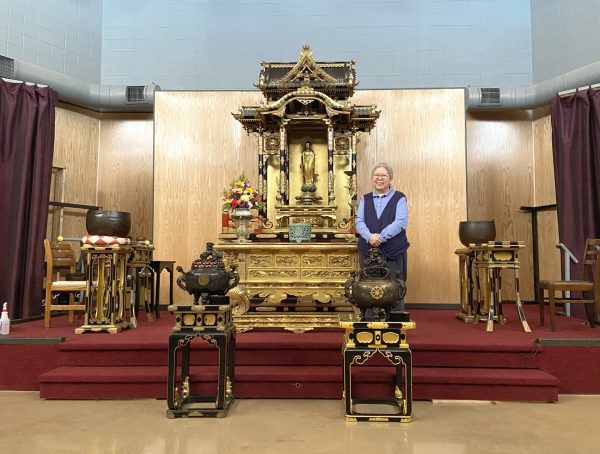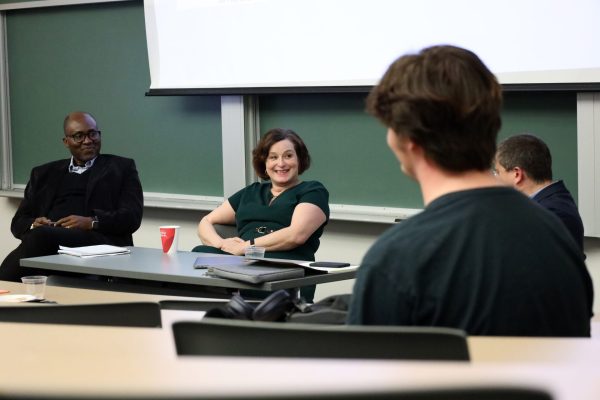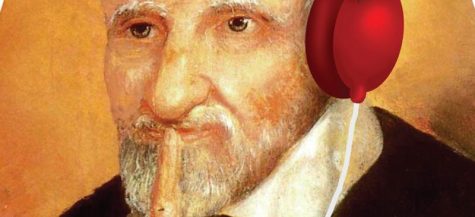Journalists detail their work during the pandemic
AP for The DePaulia
Police officers are shown arresting Des Moines Register reporter Andrea Sahouri after a Black Lives Matter protest she was covering on May 31, 2020, in Des Moines, Iowa, was dispersed by tear gas. Sahouri is set to stand trial on Monday, March 8, 2021, on misdemeanor charges, a case that prosecutors have pursued despite international condemnation from advocates for press freedom. (Photo courtesy Katie Akin via AP)
The Covid-19 pandemic hit its one-year anniversary and many industries have changed drastically, one being journalism.
Journalists have had to adjust the way they conduct their business, including the way they get sources, how they interview those sources and how they accurately report information. Not only do journalists have to deal with the noise of social media, but they also have to deal with people not understanding the industry as a whole.
“I think people either misunderstand or don’t understand at all is… safety measures when it comes to protecting our sources’ identities, and also protecting our sources going forward,” said Grace Del Vecchio, the engagement editor at 14 East Magazine.
Del Vecchio says that 14 East faced backlash when they interviewed protesters during the summer. They allowed anonymity to the protestors by using coded apps to communicate and Google Forms that didn’t ask for any contact information.
Caroline Kubzansky, the former Managing Editor of the Chicago Maroon at the University of Chicago, explains that journalists report on many topics, but it doesn’t mean they condone the things they are reporting on.
She gives the example of how journalists report on people violating quarantine regulations. Kubzansky explains that journalists write these stories in regard to public interests.
With regards to the pandemic, many people across various industries will say they miss coming into office. The pandemic has forced everyone to be almost entirely virtual.
“I’ve been giving a lot more Zoom calls than before,” explains Alex Acain, a sports journalist studying at DePaul. “I used to conduct man on the street interviews and I gave significantly a lot more phone calls [throughout the pandemic].”
Acain says she misses physically conducting interviews and visiting places like Billy Field. She also misses the feeling of writing a feature on a Chicago sports team and having little time to catch a game afterward.
Del Vecchio has a similar sentiment saying she not only misses the physical newsroom, but she misses the collaboration and relationship building. She explains that the relationships she has built within newsrooms have been both critical and crucial to her growth as a journalist.
Kubzansky misses going out and not worrying about the potentiality of getting sick.
“I reported on a sit-in that an activist group here at UChicago did in the Spring, and I found myself shut in building with them, everybody was wearing masks and stuff,” says Kubzansky. “But because of Covid, it was also this worry of…we’re in a closed space, the ventilation isn’t great, you know, what if I’m putting myself in danger.”
When it comes to the idea of objectivity, Del Vecchio saying that it doesn’t exist while Acain says it’s harder to resist bias. Acain says that it’s hard to resist bias as people are behind their screens and all over social media, saying whatever they want without any repercussions.
Kubzansky feels that the meaning of the word should be reexamined and possibly even changed. She explains that the use of the word coincides with the version of facts usually endorsed by the white men of the industry. She feels that the pandemic has shattered the concept of objectivity.
Del Vecchio explains that objectivity can be harmful, especially to people of color. She believes that objectivity upholds white supremacy as well as racist and misogynistic systems. Del Vecchio says that people’s experiences and identities qualify them to speak on those issues.
“I think our identities and our experiences need to be considered as vital parts of reporting and not be dismissed in the vein of objectivity,” she said.
The pandemic has impacted their journalism in the college setting as well. With Acain, she tends to lose motivation to get assignments done as she tends to be more on her toes in person.
Del Vecchio wasn’t even sure if she wanted to continue as a journalist before the pandemic hit. Once Covid-19 hit Chicago and the DePaul campus, people were leaning on journalists for accurate information. Due to that reliance and everything being flipped on its head, Del Vecchio and fellow journalists were thrown into a role of responsibility, a role that she hadn’t had before.
With regards to the journalism industry as a whole, some have been able to survive while others haven’t. According to a New York Times article, the pandemic has led to pay cuts and layoffs at many news outlets throughout the nation. About 37,000,000 people employed at news media companies have experienced these pay cuts and layoffs.
Update (3/15/2021): This story has been updated to include comment from Caroline Kubzansky.


